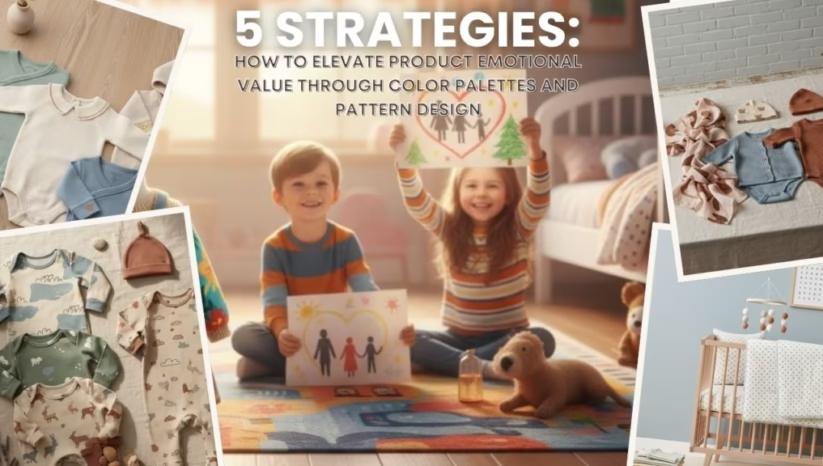5 Strategies: How to Elevate Product Emotional Value Through Color Palettes and Pattern Design
Conteúdo
- 1 5 Strategies: How to Elevate Product Emotional Value Through Color Palettes and Pattern Design
Introduction: Emotional Value Driving Brand Growth
In a saturated market, mere functionality no longer meets consumer demands. For Product Managers and Designers, the core pain point is finding effective emotional design strategies to enhance product appeal and build lasting brand loyalty. This professional report offers insights based on psychology and market data, illustrating how your marca de roupa para bebé can leverage sophisticated color and pattern design to infuse powerful emotional value, thereby optimizing marketing de vestuário para bebés and boosting market competitiveness.
No idea how to make children’s clothes? This is the definitive, all-in-one guide the kids’ apparel industry doesn’t want you to have.
Macro Market Analysis: Emotional Value and Purchasing Decisions
Research indicates that over 60% of apparel purchasing decisions are influenced by emotional factors. For infant and children’s products, parents desire items that convey safety, joy, and a sense of belonging. Um êxito baby clothing trend is no longer just about style; it’s about the emotional connection the product establishes with the wearer and the purchaser. Therefore, your design team must treat emotional elements as core metrics.
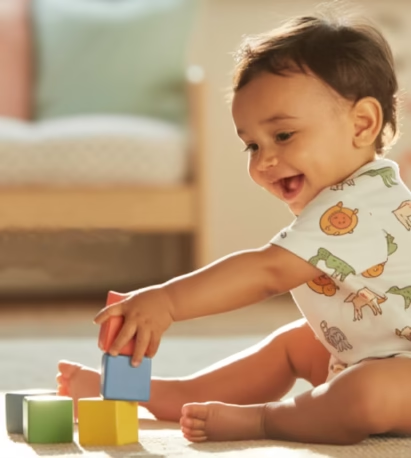
Com 17 anos de experiência, a petelulu oferece uma gama completa de
serviços de fabrico desde a conceção até à entrega.
Comece do zero, crie a sua própria marca.
17+
servindo as 10 principais marcas americanas
15+
servindo as 10 principais marcas australianas
12+
ao serviço das 10 principais marcas europeias
Contacte-nos para obter o orçamento.👇
Core Design Strategies (Addressing the Pain Point): 5 Pillars of Emotional Design
We find that by precisely controlling the “stimulus intensity” and “narrative depth” of colors and patterns, brands can effectively enhance the product’s emotional value.
1. Psychological Color Application: The Calming Power of Low Stimulus
-
Strategy Focus: Product designers actively adopt low-saturation, muted (Morandi) palettes and earth tones.(click to the all-in-one guide for popular baby clothing colors.) These colors are psychologically proven to reduce visual stress, mimicking the soft light of the womb environment, providing infants with an immediate sense of security and calm.
-
Authoritative Insight: In fabrico de vestuário para bebés, we must adhere to using eco-friendly, non-irritating dyes certified by Oeko-Tex Standard 100, ensuring that the “calm” color is backed by a credible promise of “safety.”
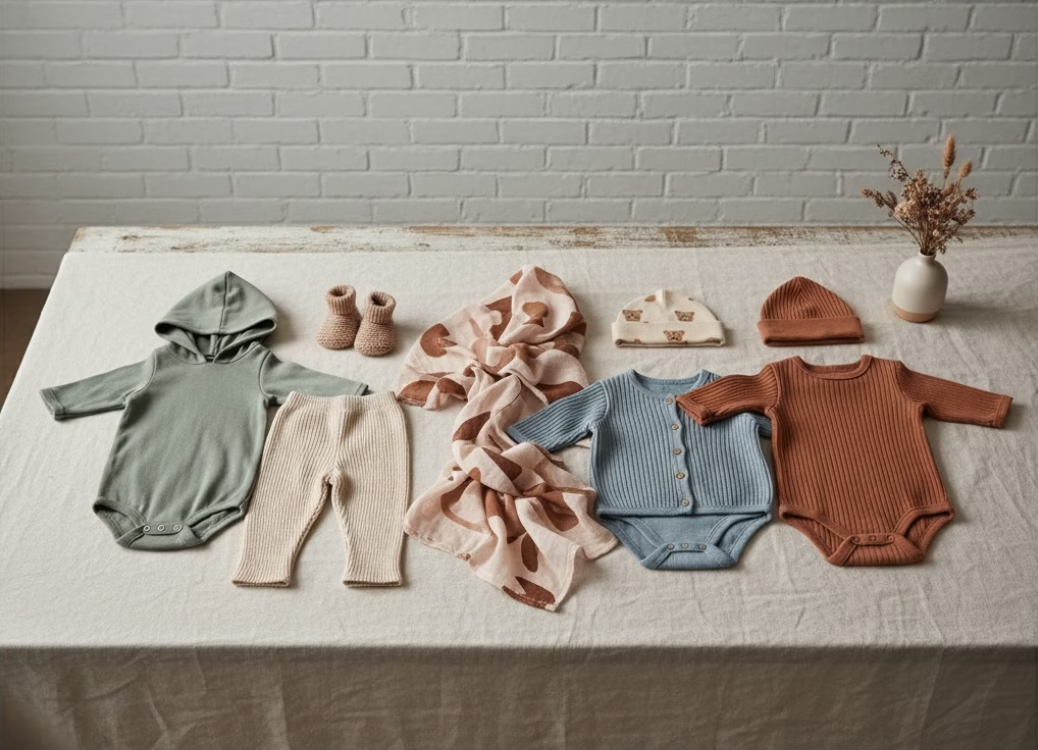
-
Strategy Focus: When designing patterns, avoid overly cartoonish or complex imagery. We advocate for simple, abstract natural elements (like hand-drawn clouds, stars, irregular waves) or gentle animal silhouettes. These patterns trigger feelings of nostalgia and tenderness in parents, becoming emotional exchange points between parent and child.
-
Marketing Optimization: In marketing de vestuário para bebés, name these patterns “Dream Series” or “Exploration Series,” giving them a function beyond the visual, enhancing the product’s storytelling and emotional depth.
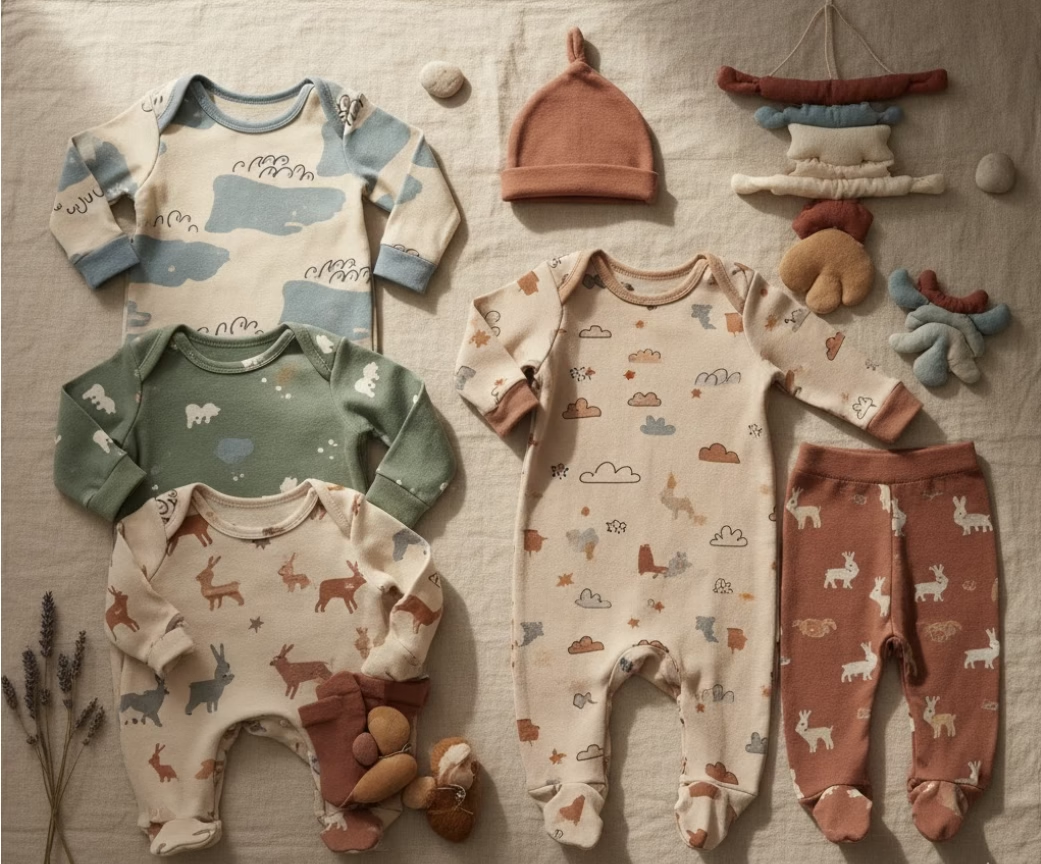
3. Contrast and Balance: Dynamic Creation of Joy
-
Strategy Focus: Enhancing emotional value requires joy. Designers should strategically incorporate small areas of sophisticated neutrals or low-saturation contrasting colors (e.g., a subtle band of pale ginger on an oat-colored collar) over a calm base color. This dynamic balance maintains the calm needed for the infant while sparking positive, lighthearted joy through visual “highlights.”
-
Product Application: This color contrast method is particularly suitable for outerwear and accessories, creating a baby clothing trend that is easy to style yet design-forward.
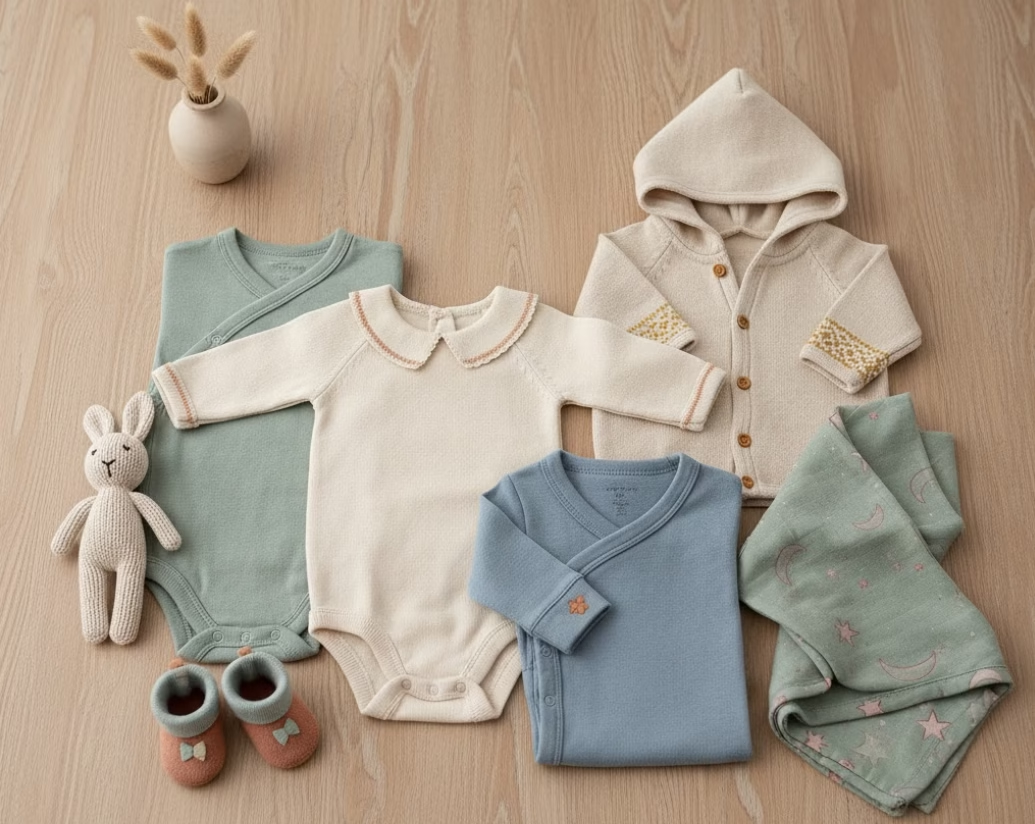
-
Strategy Focus: Utilize small, uniform repetitive patterns. Whether tiny dots, stripes, or geometric shapes, rhythmic repetition establishes predictability in the brain. This brings a psychological sense of comfort and order to both infants, who are accustomed to stable environments, and parents seeking routine.
-
Manufacturing Consideration: Good fabrico de vestuário para bebés processes ensure accurate pattern alignment, avoiding visual confusion and maintaining the consistency of emotional value.
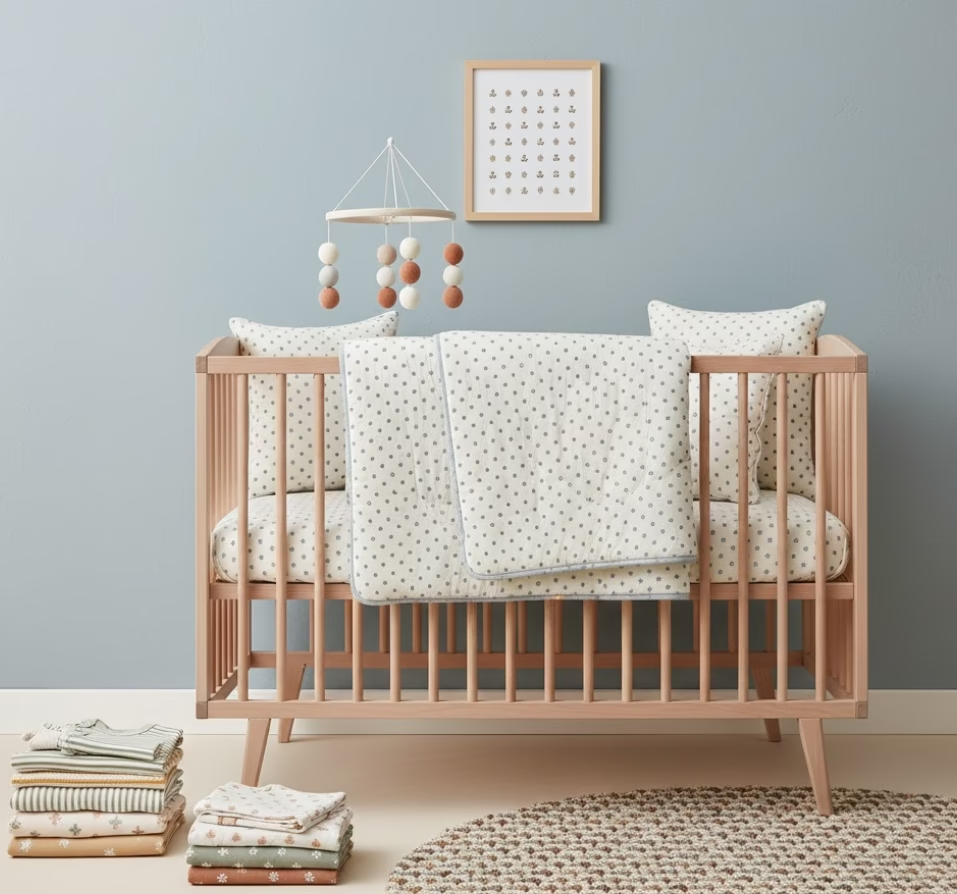
5. Integrating Culture and Identity: Establishing Belonging
-
Strategy Focus: Designers abstract regional, seasonal cultural elements or traditional colors (e.g., the symbolic colors of a certain holiday) and weave them into the design. This allows consumers to feel that the product connects with their identity and family tradition, building a strong sense of belonging and recognition.
-
Brand Positioning: This strategy is crucial for differentiating your marca de roupa para bebé from mass-market competitors, elevating the product into a vehicle for family memories and cultural heritage.
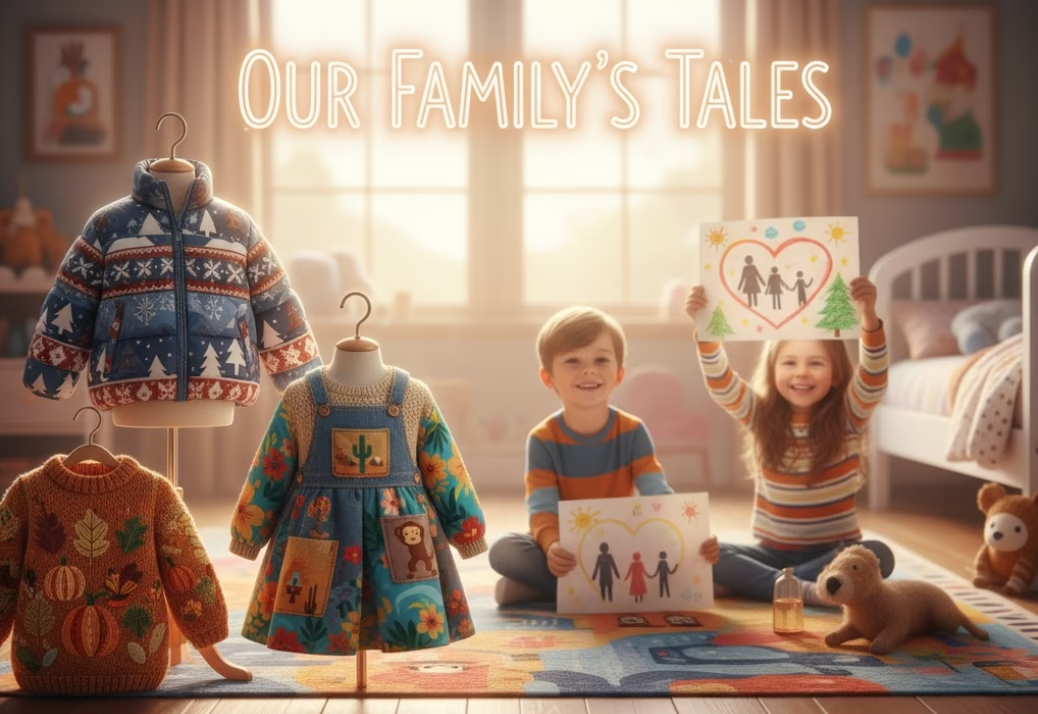
For more information on children’s clothing design or manufacturing, please contact us.
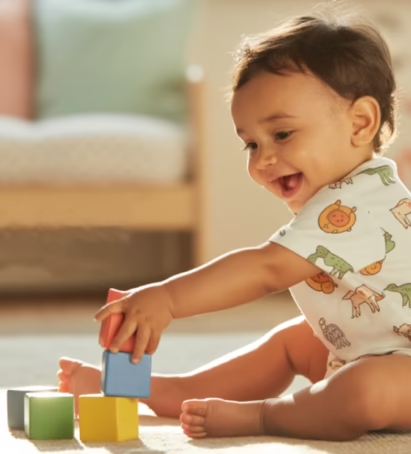
Com 17 anos de experiência, a petelulu oferece uma gama completa de
serviços de fabrico desde a conceção até à entrega.
Comece do zero, crie a sua própria marca.
17+
servindo as 10 principais marcas americanas
15+
servindo as 10 principais marcas australianas
12+
ao serviço das 10 principais marcas europeias
Contacte-nos para obter o orçamento.👇
Strategy Execution: The Color and Pattern Emotional Value Matrix
To maximize emotional value, brands must quantify the potential emotional impact of colors and patterns during the design phase.
| Elemento de conceção | Recommended Color/Pattern | Core Emotional Value (Designer Goal) | Design Action (Active Voice) |
|---|---|---|---|
| Main Color Palette | Ash Blue, Oat Beige, Sage Green (Low Saturation) | Security, Tranquility | We ensure all basic colorways follow the psychological “calmness” principle. |
| Pattern Theme | Abstracted nature elements, linear patterns | Tenderness, Connection | The team integrates patterns into the brand narrative to enhance baby clothing marketing efficiency. |
| Accent Colors | Small amounts of low-saturation Mustard Yellow, Caramel | Joy, Positivity | We strategically use accent colors to differentiate our baby clothing brand. |
Conclusion: Emotional Design Empowering the Future
By systematically implementing these 5 color and pattern design strategies, your Product Manager and Designer teams can effectively convert emotional value into market value. Proactively mastering the design language ensures that every color choice and pattern detail serves an emotional connection, not only solving the pain point of “enhancing product appeal” but also solidifying your brand’s position as an industry leader in the competitive baby clothing trend paisagem.
Perguntas frequentes (FAQ)
Q1: How do we determine which colors convey “security”?
A: “Security” colors are typically neutral and low-saturation colors, such as light gray, off-white, and soft blues and greens. Product designers are advised to consult authoritative color psychology research and test emotional responses with small consumer groups to validate.
Q2: Will overly abstract patterns reduce product recognition?
A: Appropriate abstraction can elevate the premium feel and artistry, which is an emotional value in itself. The key is consistência. Your marca de roupa para bebé should use a set of signature abstract patterns, making them the brand’s visual signature to boost marketing de vestuário para bebés effectiveness.
Q3: How can small brands compete in the high cost of “emotional design”?
A: Emotional design does not necessarily mean high cost. Small brands should focus on the natural texture of materials and the purity of colors, using minimalist design (reducing fabrico de vestuário para bebés complexity) to emphasize the authenticity and quality of the color and pattern, which is often more compelling than complex embellishments.
Sobre o autor
Xhiney, fundadora da Petelulu, tem mais de 20 anos de experiência em design, produção e comércio internacional de vestuário para crianças. Colaboradora da Roupa de criança e Júnior Xhiney passou 17 anos a trabalhar com marcas de roupa de criança de gama alta na Europa e nos EUA, oferecendo conhecimentos especializados e apoio.
